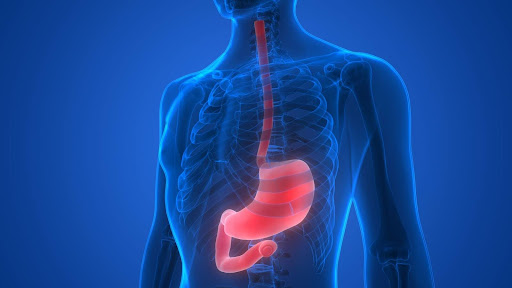8 Conditions That Affect The Esophagus

The human digestive system holds significant importance in various bodily functions. It serves as the pathway for food and water to enter, providing the energy needed for growth and cell repair. Essentially, the digestive system plays a crucial role in sustaining life and promoting overall well-being.
The esophagus is a muscular tube that connects the throat to the stomach, which plays a significant role in the digestion process. While it might seem like a straightforward structure, the esophagus can be susceptible to various conditions impacting its function.
Esophageal Diseases And Disorders
At Birmingham Gastroenterology, we believe understanding common conditions regarding the esophagus is essential for recognizing symptoms, seeking timely medical attention, and managing associated challenges.
- Gastroesophageal Reflux Disease (GERD)
GERD is a prevalent condition where stomach acid flows back into the esophagus, causing irritation and inflammation. GERD is a rather common condition affecting roughly 20% of the United States population. Persistent GERD can lead to more severe complications such as esophagitis, Barrett’s esophagus, and even esophageal cancer. Symptoms often include heartburn, regurgitation, chest pain, and difficulty swallowing. Lifestyle modifications, medications, and, in severe cases, surgery may be recommended to manage GERD.
- Esophagitis
Esophagitis refers to inflammation of the esophagus, often resulting from irritation caused by stomach acid, infections, or certain medications. It can lead to discomfort, pain, and difficulty swallowing. Treatment involves addressing the underlying cause, along with medications to reduce inflammation.
- Barrett’s Esophagus
In some cases, chronic GERD can lead to the development of Barrett’s esophagus, a condition where the lining of the esophagus undergoes changes that may increase the risk of esophageal cancer. Regular monitoring and treatment of GERD are crucial in managing Barrett’s esophagus, and in some cases, procedures like endoscopic surveillance may be recommended.
- Dysphagia
Dysphagia is a disorder characterized by difficulty swallowing, regurgitation, and chest pain. This can often lead to a feeling that food or liquid is stuck in the throat. This condition is most commonly seen in the older population and can be caused by a condition that weakens or damages the muscles and nerves used for swallowing. Speech and language therapy to learn new swallowing techniques are often used as methods of treatment.
- Esophageal Strictures
Esophageal strictures are narrowings or constrictions in the esophagus, often caused by scar tissue formation. Chronic inflammation, GERD, or certain medical procedures can contribute to the development of strictures. Symptoms include difficulty swallowing and a sensation of food sticking in the throat. Treatment may involve stretching the esophagus or, in severe cases, surgery.
- Eosinophilic Esophagitis
Eosinophilic esophagitis is a chronic immune system disorder characterized by an overabundance of white blood cells in the esophagus. This condition is often triggered by allergies and can lead to decreased appetite, recurring abdominal pain, and trouble swallowing or vomiting. Management typically involves dietary changes, medications, and monitoring for allergic triggers.
- Esophageal Cancer
Esophageal cancer is a serious condition that often develops from prolonged irritation, such as that caused by chronic GERD or Barrett’s esophagus. Symptoms may include difficulty swallowing, unintended weight loss, and chest pain. Treatment options may include surgery, chemotherapy, and radiation therapy, depending on the cancer’s stage and type. According to the American Cancer Society, about 21,560 new esophageal cancer cases were diagnosed (17,030 in men and 4,530 in women) in 2023.
The esophagus is an essential part of a person’s digestive system. This makes knowing the diseases and disorders that can affect its structure and function important to have knowledge of. Here at Birmingham Gastroenterology, we have decades of experience treating diseases and disorders in all parts of the digestive system. To make an appointment to discuss your symptoms and treatment options, call us at (205) 271-8000.

